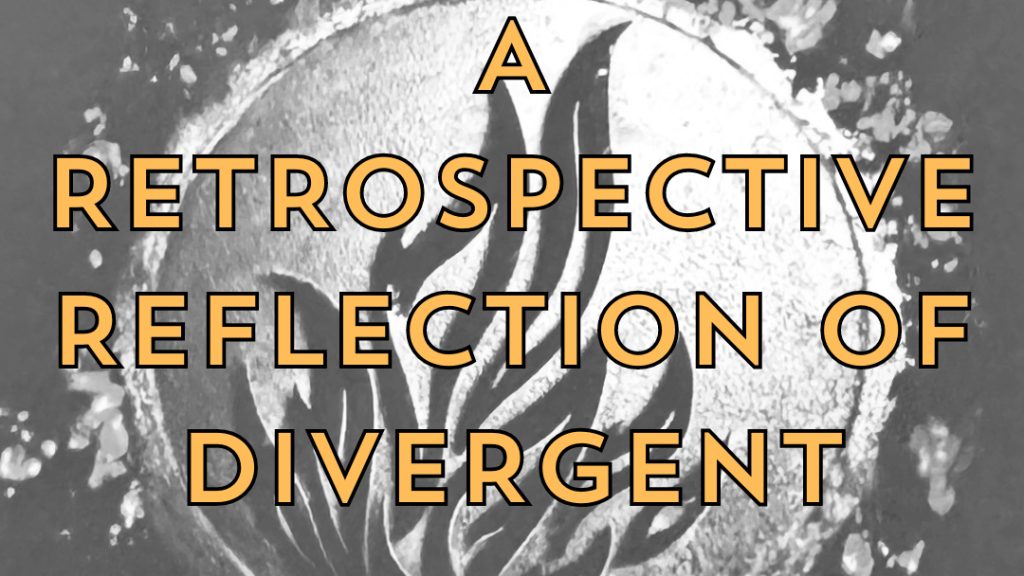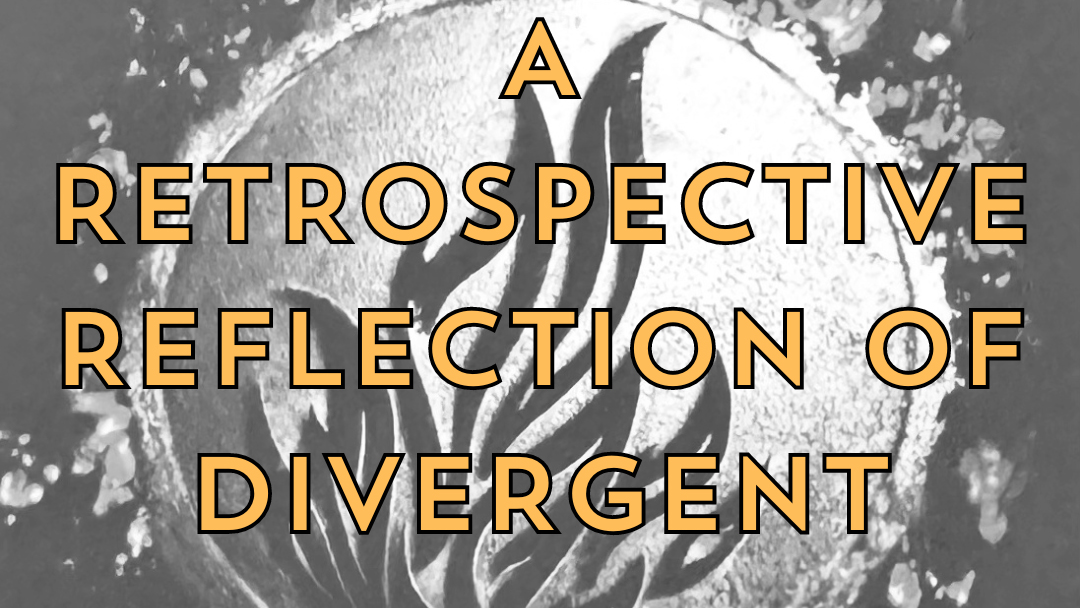
After the culmination of the Harry Potter and Twilight series and following the success of The Hunger Games in 2012, it seemed that movie studios everywhere were clamouring to produce the next big franchise that could placate the minds of pubescent teens across the world. The early 2010s were full of book to movie adaptations, ranging from The Maze Runner, Ender’s Game, The Perks of Being a Wallflower, The Fault in Our Stars, The Mortal Instruments, I Am Number Four, The 5th Wave and countless more that it would take an eternity to list.
There is many a video essay online that delves into this YA book-to-movie phenomenon that are highly engaging, nostalgic and humorous. Yet I am here to talk about one series that that particularly enraptured my attention: Divergent.
Based on the popular YA novel of the same name by Veronica Roth, it follows the story of Beatrice Prior, living in a futuristic Chicago where society has divided itself into five factions, based on different traits: Erudite (intelligence), Candor (honesty), Abnegation (selflessness), Amity (kindness) and Dauntless (bravery).
On one day every year, all sixteen-year-olds take part in a choosing ceremony, deciding which faction they will live in for the remainder of their lives. To help them determine their choices, they undergo an aptitude test. Following her test, Beatrice finds out that she is…(take a bated breath)…DIVERGENT. Those who are Divergent don’t fit into any of the faction systems and are deemed to be a threat to society. Following this revelation, Beatrice decides to leave her old faction behind and join Dauntless, changing her name to Tris and embarking on an intense initiation process where she meets the mysterious and enigmatic man known only as Four.
However, just as Tris starts to settle into her new faction, she uncovers a sinister plan by forces seeking to declare war on society, putting her and everyone she loves in danger.
What follows is a typical young adult tale filled with action, adventure, romance, and corrupt governments and blah, blah, blah…I’m sure you get the picture.
Many have criticised Divergent and the YA dystopian genre for its desperate attempts to ride the wave of the success of The Hunger Games, which is often regarded as the superior series, and I don’t disagree. Many teenage book-to-movie adaptations failed to reach the soaring heights of The Hunger Games, often feeling lifeless, dull, just desperate cash grabs by conglomerate movie studios.
However, whilst I loved The Hunger Games, my huge obsession came in the form of Divergent. When I say I was obsessed…I was OBSESSED.
I avidly read all of the books, buying multiple copies to get the covers that I liked. When I finished the final book, I don’t remember pain quite like it, crying a seemingly never-ending stream of tears. I hung posters in my bedroom, bought the illustrated movie companions, drew pictures, had screensavers on my computer, took tests to see which faction that I belonged in, watched fan edits; I even considered buying a necklace with a quote from the book. When I first went to see the movie, I also managed to pick up an empty popcorn bucket with a poster of the movie emblazoned onto it, not a tin, but a cardboard popcorn bucket, which was placed on the desk in my room for far too many years until all the colours had drained from it into a faded monochrome. I also remember that the part of my summer holiday that I was most excited for that year was the flight, purely because I would be able to watch the movie again.
As the subsequent movies were released, my enthusiasm for the series began to fade. The second and third movies (forgive the pun) diverged so far from the source material that the characters began to become unrecognisable to me and I found myself laughing at how awful the adaptation had become. The series sadly died a long, drawn-out death, becoming yet another fatality of the teenage dystopian trend that the world had begun to get tired of.
Yet I have never forgotten my love for the series, always cherishing the joy that it gave me in my early teenage years. I was jolted back to that period when I realised earlier this year that 2024 marks the 10-year anniversary of the movie adaptation of Divergent. I found myself compelled to revisit the series, reading the first book and watching the movie to mark the occasion, to figure out what it was exactly that made me fall head over heels for it in the first place. And I am so glad that I did.
I am not going to pretend that Divergent is an underrated masterpiece, because it isn’t. The plot is somewhat simple in its construction, arguably being a tad threadbare and following many of the typical story beats of a YA novel in which the protagonist has to grapple with the corrupt government in a post-apocalyptic, dystopian society. Whilst the premise and worldbuilding is compelling, by the conclusion of the series a lot of questions are left unanswered, and some plot threads feel rushed in their conclusion. It also has the ‘eye-rollingly’ typical, brooding male love interest with a chiselled jawline who harbours some form of mysterious, dark past. Both the book and the movie are also a tad melodramatic, with some fabulously cheesy lines that simultaneously make me cringe and giggle. The movie also has the common problem of most of the actors being far older than the characters they are playing, which can often make a lot of the teenage actions they make look somewhat silly and immature. It’s arguably just a simple YA novel and movie. It could be branded as ‘The Hunger Games with tattoos.’
But I don’t care, revisiting the series has bought me a sense of unabashed joy.
I devoured the first book with a feverish hunger. Yes, it may not be necessarily revolutionary, but it is immensely readable and accessible. The characters are relatable and interesting, drawing you into the world they are living in. The plot may be simple, but it’s fast paced, keeping you on the edge of your toes. Just as I did when I first read the book, I found myself staying up until the early hours of the night in order to finish it.
As book to movie adaptations go, Divergent is among the best, never straying far from the source material, hitting most of the important story points, capturing the essence of the novel whilst also elevating it to the blockbuster heights that it needs to reach. The fear landscape scenes in particular are translated well, if not better, in my opinion than the book. The actors also manage to capture the likeness of the characters despite their older age and whilst not being a groundbreaking movie, its simply well-made and doesn’t treat the audience too idiotically. The soundtrack also SLAPS, who doesn’t love Ellie Goulding sighing swoon fully over sweeping shots of a downtrodden Chicago?
Let’s just not talk about the other movies…its too painful.
Wrapped up within this excitement, I realised that the reason I resonated so strongly with Divergent was because of its simple message about bravery and standing up for what you believe in. Of course, this is a message found in many YA adaptations.
The YA genre is often made fun of for the common trope of a strong protagonist overcoming the hostile government that is trying to supress them, with many scorning teens for simply enjoying a simple story of good vs evil. This mockery of the genre has always irked me. Teenage years are filled with a sense of angst, anxiety, confusion and frustration, hovering on a wobbly tightrope where you are expected to act grown up, plan out your life yet are still often treated as a child, having to follow a set of rigid rules that can often feel suffocating. So, it’s no wonder that stories of teens overcoming an evil group of adults, whilst battling a love triangle, resonate with teens. The YA genre of novels and movies allowed teenagers to escape the grim reality of growing up, to imagine a world in which boundaries could be broken and evil regimes toppled. The fandoms that spawned from the novels and movies also created communities where friendships were forged and creativity flourished in the forms of artwork and fanfiction.
Revisiting Divergent, I simply realised that it allowed me to have a place to escape to, where I could imagine myself living my own life, having a sense of control when the real world felt so chaotic yet simultaneously restrained.
I first read Divergent at a point of an immense change in my life. I had just started boarding school, moving away from home for the first time, away from my friends, starting harder schoolwork and grappling with my queer identity whilst being surrounded by a boyish masculinity that was terrifying to me. I felt like I didn’t belong anywhere, too ‘girly’ for the boys and too ‘boyish’ for the girls; I felt alone, confused and isolated.
Reading Divergent was a shining beacon of hope for me at the time. It’s celebration of divergence, of refusing to adhere to a rigid faction system, resonated with my queer little heart, telling me that it was okay to be myself, that, like Tris, I will find my place within the world someday. Whilst this may seem like a simple message, it was everything that I needed to hear. It gave me confidence, courage and hope. Just as Tris gets a tattoo of three ravens to remind her of her family and how far she has come, Divergent worked its way into my heart, acting as a guiding companion in the darkest of times.
My revisit of Divergent has come at the point where I feel a similar sense of confusion, worry and isolation. As I wrap up my final year at University, I have no idea at what the future may hold and am about to move away from my friends, a place I have also grown to call home.
So hearing Four tell Tris that
“Becoming fearless isn’t the point, it’s learning how to control your fear and how to be free from it, that’s the point”
(Roth 239)
has had just as much impact on me now as it did 10 years ago
I am reminding myself that whatever is out there may seem scary but that I can learn how to deal with it, and make my way through, even if its one step at a time.
Whilst Divergent isn’t a revolutionary piece of fiction, this revisit has shown how much it still means to me and continue to resonate today. Perhaps we should all connect to our teenage selves again. As isolating a period as it was, as frightening as it felt, I found my way through, there was a resilience within that little old me that powered through, and it’s something I know I still have within me as I embark on my next journey.
So revisit the good old YA dystopias of the 2010s…you never know what you might find.
Works Cited
Roth, Veronica. Divergent. Harper Collins Children’s Books, 2011.

